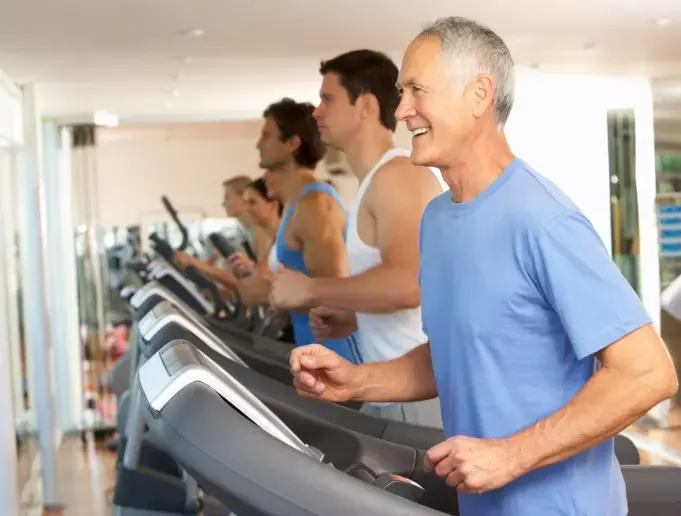- Home
- Medical news & Guidelines
- Anesthesiology
- Cardiology and CTVS
- Critical Care
- Dentistry
- Dermatology
- Diabetes and Endocrinology
- ENT
- Gastroenterology
- Medicine
- Nephrology
- Neurology
- Obstretics-Gynaecology
- Oncology
- Ophthalmology
- Orthopaedics
- Pediatrics-Neonatology
- Psychiatry
- Pulmonology
- Radiology
- Surgery
- Urology
- Laboratory Medicine
- Diet
- Nursing
- Paramedical
- Physiotherapy
- Health news
- Fact Check
- Bone Health Fact Check
- Brain Health Fact Check
- Cancer Related Fact Check
- Child Care Fact Check
- Dental and oral health fact check
- Diabetes and metabolic health fact check
- Diet and Nutrition Fact Check
- Eye and ENT Care Fact Check
- Fitness fact check
- Gut health fact check
- Heart health fact check
- Kidney health fact check
- Medical education fact check
- Men's health fact check
- Respiratory fact check
- Skin and hair care fact check
- Vaccine and Immunization fact check
- Women's health fact check
- AYUSH
- State News
- Andaman and Nicobar Islands
- Andhra Pradesh
- Arunachal Pradesh
- Assam
- Bihar
- Chandigarh
- Chattisgarh
- Dadra and Nagar Haveli
- Daman and Diu
- Delhi
- Goa
- Gujarat
- Haryana
- Himachal Pradesh
- Jammu & Kashmir
- Jharkhand
- Karnataka
- Kerala
- Ladakh
- Lakshadweep
- Madhya Pradesh
- Maharashtra
- Manipur
- Meghalaya
- Mizoram
- Nagaland
- Odisha
- Puducherry
- Punjab
- Rajasthan
- Sikkim
- Tamil Nadu
- Telangana
- Tripura
- Uttar Pradesh
- Uttrakhand
- West Bengal
- Medical Education
- Industry
Physical activity can slow Kidney Function Decline in elderly: JAMA study

Physical activity and exercise intervention can slow the rate of decline in eGFRCysC among community-dwelling sedentary older adults, a recent study published in JAMA Internal Medicine has shown. The study results have prompted the researchers to suggest that physical activity and exercise interventions should be considered as a treatment to slow the decline of eGFRCysC in older adults
Chronic kidney disease (CKD) is a leading public health problem worldwide with an estimated prevalence of 13.4%.
CKD is also associated with multiple adverse outcomes like cardiovascular events, physical decline, falls, fractures, cognitive decline, hospitalizations, and all-cause mortality.
Although new therapies are being studied to slow the progression of kidney function decline in older adults, existing strategies are predominantly pharmacological treatments for hypertension and diabetes.
However, these medications have a higher probability of causing adverse events in older adults, which may be worsened by polypharmacy. Lifestyle interventions would be ideal and much-needed options to slow Chronic kidney disease onset and progression in older adults.
The Lifestyle Interventions and Independence for Elders (LIFE) Study conducted in 2011 were designed to investigate the health effects of a moderate-intensity physical activity and exercise intervention compared with health education in sedentary older adults with mobility limitations.
An ancillary study conducted by Michael G. Shlipak et. al was conducted to measure the blood concentrations of cystatin C at baseline and during follow-up. The ultimate goal was to evaluate if randomization to structured physical activity and exercise intervention vs a control group of "successful aging" health education would change the rate of decline in eGFR per cystatin C (eGFRCysC) in this older population over a time period of 2 years.
This ancillary analysis of the Lifestyle Interventions and Independence For Elders phase 3, randomized clinical trial enrolled 1199 community-dwelling, sedentary adults. The group included people aged 70 to 89 years with mobility limitations and available blood specimens.
The intervention arm underwent a combined activity and functional exercise intervention.
The activity component was based on walking, with a target of 150 min/wk, and the functional exercise component included strength, flexibility, and balance training.
The health education control arm of the trial involved weekly workshops over the first 26 weeks, followed by monthly workshops.
A strong relationship between physical activity and eGFRCysC decline was found mainly:
Overall, participants who were in the highest quartile of step count had an approximately 2 mL/min/1.73 m² slower decline in eGFRCysC compared to those with the least activity.
They also had about a one-third reduction in chances of rapid kidney decline.
The time spent in moderate activity also had a linear association with slower declines in kidney function
"Physical activity and exercise interventions should be considered as a treatment to slow decline of eGFRCysC in older adults," the authors concluded.
"These data allow clinicians to add another evidence-based rationale for exercise for any older adult. By reporting the prominent improvements that physical activity can have on the trajectory of kidney disease, clinicians can empower patients toward lifestyle change and advocacy," they added.
B.Sc Life Sciences, M.Sc Biotechnology, B.Ed
Isra Zaman is a Life Science graduate from Daulat Ram College, Delhi University, and a postgraduate in Biotechnology from Amity University. She has a flair for writing, and her roles at Medicaldialogues include that of a Sr. content writer and a medical correspondent. Her news pieces cover recent discoveries and updates from the health and medicine sector. She can be reached at editorial@medicaldialogues.in.
Dr Kamal Kant Kohli-MBBS, DTCD- a chest specialist with more than 30 years of practice and a flair for writing clinical articles, Dr Kamal Kant Kohli joined Medical Dialogues as a Chief Editor of Medical News. Besides writing articles, as an editor, he proofreads and verifies all the medical content published on Medical Dialogues including those coming from journals, studies,medical conferences,guidelines etc. Email: drkohli@medicaldialogues.in. Contact no. 011-43720751


